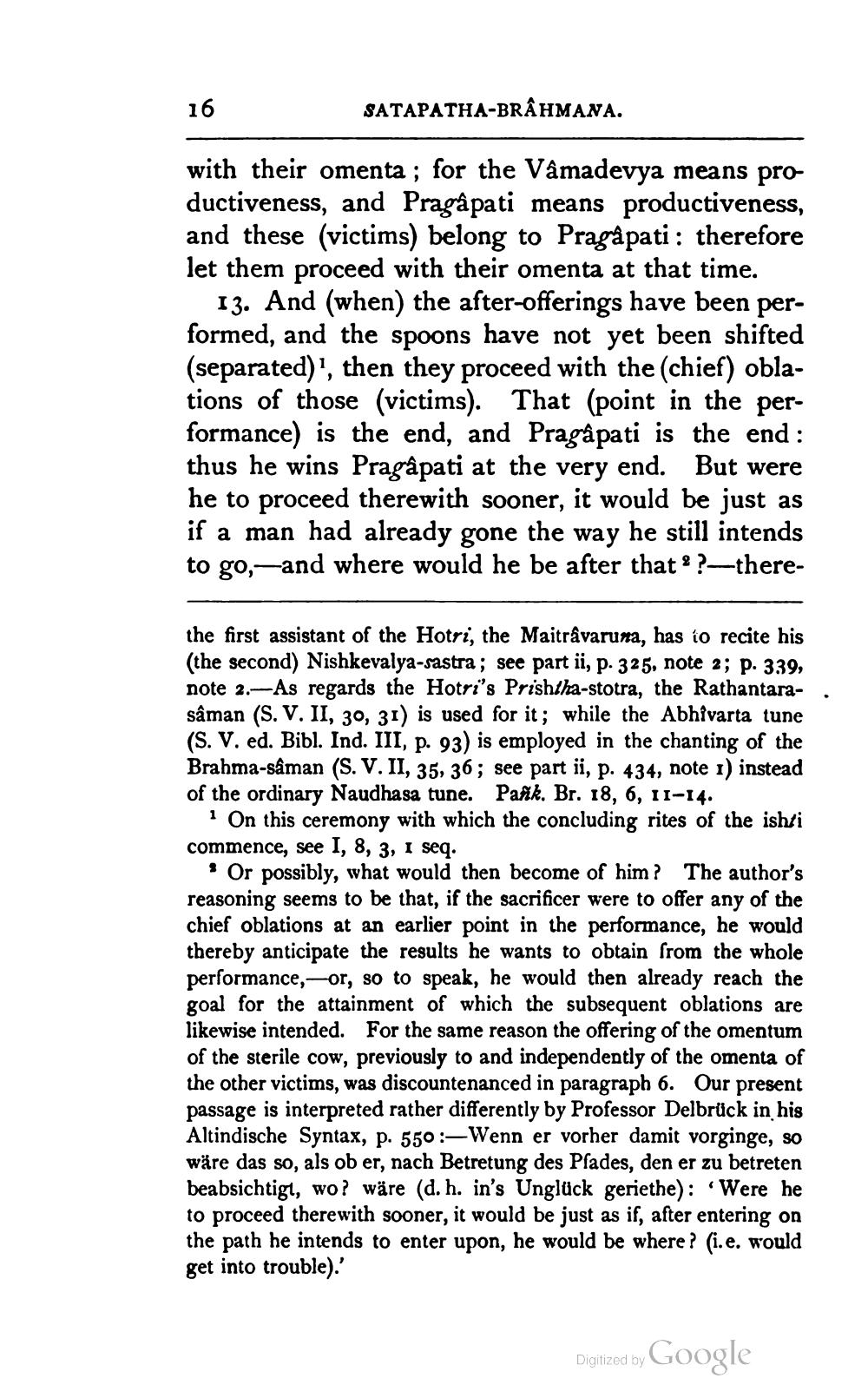________________
16
SATAPATHA-BRAHMANA.
with their omenta ; for the Vâmadevya means productiveness, and Pragâ pati means productiveness, and these (victims) belong to Pragâ pati : therefore let them proceed with their omenta at that time.
13. And (when) the after-offerings have been performed, and the spoons have not yet been shifted (separated)", then they proceed with the (chief) oblations of those (victims). That (point in the performance) is the end, and Pragâpati is the end : thus he wins Pragâpati at the very end. But were he to proceed therewith sooner, it would be just as if a man had already gone the way he still intends to go,--and where would he be after that? ?-there
the first assistant of the Hotri, the Maitrâvaruna, has to recite his (the second) Nishkevalya-sastra; see part ii, p. 325, note 2; p. 339, note 2.-As regards the Hotri's Prishtha-stotra, the Rathantarasâman (S. V. II, 30, 31) is used for it; while the Abhivarta tune (S. V. ed. Bibl. Ind. III, p. 93) is employed in the chanting of the Brahma-saman (S. V. II, 35, 36; see part ii, p. 434, note 1) instead of the ordinary Naudhasa tune. Park. Br. 18, 6, 11-14.
On this ceremony with which the concluding rites of the ishti commence, see I, 8, 3, 1 seq.
. Or possibly, what would then become of him? The author's reasoning seems to be that, if the sacrificer were to offer any of the chief oblations at an earlier point in the performance, he would thereby anticipate the results he wants to obtain from the whole performance,-or, so to speak, he would then already reach the goal for the attainment of which the subsequent oblations are likewise intended. For the same reason the offering of the omentum of the sterile cow, previously to and independently of the omenta of the other victims, was discountenanced in paragraph 6. Our present passage is interpreted rather differently by Professor Delbrück in his Altindische Syntax, p. 550 :—Wenn er vorher damit vorginge, so wäre das so, als ob er, nach Betretung des Pfades, den er zu betreten beabsichtigt, wo? wäre (d. h. in's Unglück geriethe): "Were he to proceed therewith sooner, it would be just as if, after entering on the path he intends to enter upon, he would be where? (i.e. would get into trouble).'
Digitized by Google




